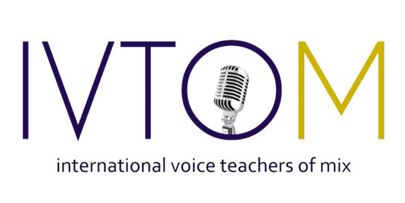Prepping Singers for Collegiate Studies
Weekly Teaching Tip – Oct. 16, 2017
by Camiah Mongorance
If you teach a lot of high school singers who are looking to study music/voice in some form during their college education, there is some important preparation that needs to take place before they leave for school. I also think it’s great preparation for all singers, but new college Freshman are going to encounter a lot changes all at once and one of those changes is going to be private voice lessons or group voice lessons with another instructor. Helping them value their new instructor and communicate effectively with the new instructor makes you an important bridge between the fantastic instruction that they’ve received from you and the awesome instruction that they will receive in college. If that instruction isn’t truly awesome, you can serve as a guide to show them how to get the most out of what is being offered.
My experience with college voice instructors has been that nearly every single one of them has something really great to offer a singer. They may go about a different way. They may use different vocabulary. They may even criticize the instruction the singer has received in the past (that Voice Teacher Ego rearing it’s ugly head – we all struggle with it). However, they still have something good to offer a singer. The most important thing is the singer gets past the differences, the vocabulary and criticism (if there is any at all) and sees to the heart of what the new instructor has to offer! So our job is to give them skills to SEE past everything else to what is of value.
Here are a few of the things I do to help them prepare…
1. I use a lot of different scales. Blues scales, minor scales, exercises from Marchesi, scales from Caruso, exercises that our great Mentor Teacher Earl Harville has suggested. Introduce a new exercise every week. Not only does this expose them to different patterns and improve their ear and flexibility, but when they step in front of that new teacher, they won’t be completely thrown when they’ve never heard the exercise because they are accustomed to adapting to new exercises quickly.
2. I use vocabulary from a variety of vocal methods during their lessons and give them the meaning behind the vocabulary. “This coordination is described by a classically trained teacher as…. But an Estille trained voice teacher is going to describe it as…. Still a CCM trained voice teacher may describe it this way…. Nobody’s wrong. It’s different ways of describing how to get to this coordination. They can call it purple if they want, but this is what they’re looking for.” Tilt, bratty, twang, Mode 1, mix, falsetto, heavy mix, belt, covered, dumb – Working through the incredibly muddy world of Vocal Pedagogy Vocabulary is frustrating to professionals with decades of experience, so don’t leave these young singers without any help in this area. Once they realize that there are many ways of saying the same thing, they are mentally equipped to search for the common ground and find a way of effectively communicating with their voice teacher.
3. If the singer is a musical theater major or a contemporary music major and they are assigned to a classical teacher sometimes frustrations can arise when the singer feels that the work they are doing in their voice lessons does not directly translate to their professional goals. This happens a lot in the university setting. Conservatory programs usually have voice teachers that specialize in the voice styles that the students are studying, but universities will frequently rely on their Vocal Performance faculty to cover all private lessons across majors (this is not true of all university programs, but it is the case with a majority). When I get that phone call from a frustrated singer, I encourage them to explore the new coordinations that their instructor is teaching. As I stated in my last Teaching Tip (Balance In The Extremes), all singers should explore the vast array of coordinations that are available to them in their voice. If their new college voice teacher concentrates on a classical coordination, that’s great! They can practice mix and belt on their own. Pull out those old recordings of lessons and work through all the sounds their voice can produce. I encourage the singer to look at their voice lessons as one more tool to help balance their voice. Most singers see the wisdom in this and find enough perspective to see the good in what their teacher is offering. Mentally they are ready to make progress.
4. Voice Teacher Ego (VTE) is truly a mesmerizing thing to behold! Sometimes the self-importance is so critically inflated there is not enough space for the singer and the teacher to occupy the same room. Frequently, I have a singer call me and tell me that their teacher did nothing but criticize anything and everything about their voice during their first lesson. This is when we talk about that all important VTE. Here’s one singer’s experience from two years ago. She enters her first lesson and is told that she is addicted to belting (an assessment that was made by the acting faculty and told to the voice teacher) and they need to work on getting a more balanced coordination so that she can increase her range and work on a more healthy sound. The teacher immediately puts her through scales ascending through her bridges on a lip trill until she reaches….. the end of the piano. The teacher sits back and says, “Well, I’ve never done that before with a singer. That’s not what I was expecting.” She called me extremely frustrated and feeling unfairly judged. So I told her to go into the next lesson and tell the teacher how much she appreciates his instruction and how she’s looking forward to learning some new approaches from him. I told her to take every opportunity to express appreciation for the teacher. After a few weeks, the teacher felt valued and the VTE was quieted enough so they could actually get down to work. This singer and teacher ended up becoming wonderful friends and quite close. AND, the teacher DID offer some great instruction to this singer! I simply helped the singer calm the VTE to get to the great instruction.
5. Emphasize that MOST VOICE TEACHERS HAVE SOMETHING REALLY GOOD TO OFFER A SINGER! This is my mantra for all Seniors in high school preparing to attend a college programs. Maybe you have to search for it. Maybe you have to stroke their ego. Maybe you have filter through confusing vocabulary. But there’s usually something really good there. And sometimes, there’s not. In twenty years of teaching, I’ve only had one student in the unique situation of being assigned to a voice teacher in a college musical theatre program that was borderline verbally abusive. Sadly, there’s always the exception. It was a difficult and traumatizing experience for her, but she made it through and was re-assigned to another teacher for Sophomore year. Her weekly Skype lessons with me were a mixture of vocal technique and emotional therapy. After that experience, I make sure that college Freshman know that they can take Skype lessons with me on a regular basis or they can schedule a lesson whenever they need a “tune up”. The important thing is that they don’t feel completely lost and abandoned.
Helping these singers bridge the gap between your instruction and college instruction only makes you a more valuable and cherished mentor. More importantly, singers feel empowered and prepared as they begin their collegiate studies. Last of all, this applies to every singer that walks into our studio. Helping them decipher vocabulary and exposing them to a variety of vocal pedagogy increasing their understanding of the voice world, makes them a more valuable musician and YOU are the brilliant teacher that helped them bridge all those gaps.
P.S. You get points for identifying all the times that I stroked your VTE! 😉

